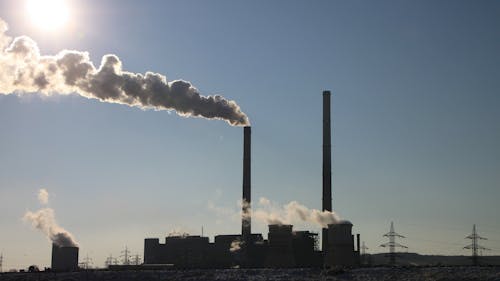Rutgers holds final Climate Task Force Town Hall for semester

The President’s Task Force on Carbon Neutrality and Climate Resilience hosted its third and final town hall on Tuesday to provide updates on its activities since releasing the phase two report for developing a Climate Action Plan.
Robert Kopp, a professor in the Department of Earth and Planetary Sciences and co-chair of the Task Force, said phase two involved identifying potential climate solutions for the University to implement based on the findings of the Task Force’s working groups. Now, he said, it is a matter of determining which solutions to prioritize and how quickly they can be accomplished within a reasonable budget.
“Rutgers has been a pioneer in community-engaged climate research,” Kopp said. “Nonetheless, there's a lot more work to do to bring what we do as an institution ... up to the level of our academic research and to accelerate our academic research and integrate that with what we're doing to advance climate action on campus.”
He said the Task Force’s recent work has involved analyzing the costs of the potential solutions it has identified for each sector contributing to the University’s emissions and the potential barriers.
The Task Force discovered that 76 percent of Rutgers’ emissions are produced by energy production, including the electricity grid, heating system and cogeneration, which refers to the simultaneous production of heat and electricity. Fewer emissions are produced by the University’s bus system and food supply chains as well as individual commute and business travel, Kopp said.
To target carbon emissions produced by heating and cogeneration, he said, the University can retrofit inefficient buildings and install monitoring control systems to better gauge where losses are occurring. In addition, while the expansion of renewable energy usage may have a larger upfront cost, he said the initiatives are worth it — for example, solar will pay for itself in less than 10 years.
In order to decarbonize the University’s heat supply, Kopp said Rutgers could potentially use technology, such as carbon capture or electric heating, to phase natural gas out of its heat production. Though, he said, this transition would be highly costly and therefore unlikely to happen until further analyses can be conducted and costs can be reduced.
Other initiatives include strengthening bicycle and pedestrian infrastructure, incentivizing reduced business travel and expanding the potential for telecommuting, all of which would reduce carbon emissions from the transportation sector, Kopp said.
In the food sector, the Task Force has looked at eliminating plastic bags, supporting locally sourced food products and participating in composting with local communities as ways to reduce greenhouse gas emissions, Kopp said.
“If we want to achieve the goal that we’ve set out of ultimately being carbon negative, we also need to … be removing carbon dioxide from the … atmosphere, not just simply putting less in,” he said.
To do this, Kopp said the University could continue to promote sustainable practices on Rutgers’ farms and prioritize carbon sequestration on Rutgers’ plants as well as develop ways to cost-effectively integrate low-carbon materials into buildings.
The town hall also included breakout rooms dedicated to discussing the Climate Action Plan’s details. In these sessions, attendees, including students, professors and University officials, discussed three topics: the varying effects of different climate initiatives, campus climate culture and the role of offsetting projects in climate action.
The event continued with a question-and-answer session where Kopp and Kevin Lyons, Task Force co-chair and an associate professor of professional practice at Rutgers Business School, fielded questions and concerns from attendees regarding the Climate Action Plan.
In regard to how Rutgers will continue working toward sustainability despite political changes, Kopp said the University should welcome government investment in climate mobilization, such as New Jersey’s Energy Master Plan and the American Jobs Act.
Lyons said by approaching the federal government for further investment, the communities around campus can directly benefit from Rutgers. In addition, Kopp said encouraging faculty research on climate change could also directly benefit the Rutgers community.
“I think we as a University can really help shape what it means to engage with communities as a research institution but also (as) something that helps communities achieve climate transformation,” Kopp said.
Throughout the question-and-answer sessions, Kopp and Lyons explained details of the Climate Action Plan, including the establishment of the Rutgers Office of Climate Mobilization that reports directly to senior University officials.
Kopp said the office would be necessary to set up a monitoring dashboard that measures and reports on the Climate Action Plan’s progress and to give the University a way to measure the team’s performance with respect to its climate goals.
Addressing students’ place in sustainability initiatives at Rutgers, Lyons expressed the need for student presence and feedback.
“An important part of this … is ensuring that students are part of this,” Lyons said. “The one good thing or positive thing about Rutgers is that we have such a large student population that is involved with climate litigation, sustainability (and) social justice issues.”



